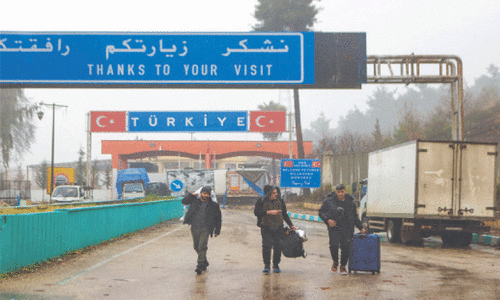ROME: When he was buried – at the insistence of the Catholic church in unconsecrated ground – Galileo Galilei left behind at least two conundrums: how could a man with impaired eyesight have made the observations that revolutionised astronomy; and did his faulty vision alter what he saw and recorded?
When his body was moved to the basilica of Santa Croce in Florence, almost 100 years later on the initiative of local freemasons, it gave rise to a third riddle: who was the woman found buried alongside him?
Scientists are planning now to solve all three questions with the help of genetics. Paolo Galluzzi, the director of Florence’s museum of the history of science, said on Thursday he had applied to the local authorities for permission to exhume Galileo’s body and that of his companion in death to take samples of their DNA for examination.
“From the time of his astronomical discoveries onwards, Galileo wrote to friends and relatives about the trouble he was having with his eyes and the difficulties it created for his observations,” said Galluzzi. In his later years he was heavily dependent on his disciple, Vincenzo Viviani. By the end he was blind, or nearly so.
Yet by then he had analysed the spots on the sun, chronicled the lunar mountains and “seas”, and discovered the largest of the satellites orbiting Jupiter. Based on his own accounts, it has been speculated that the great Tuscan physicist suffered from uveitis, or inflammation of the middle layer of the eye.
That could explain some of the idiosyncrasies in Galileo’s observations. He described Saturn, for example, as having bulges on either side, instead of a ring.
His insistence that the earth orbited the sun led to his being tried in Rome in 1633. The court ordered him to “abjure, curse and detest” his opinions and he spent the rest of his life under house arrest.
The young woman whose body was found alongside his is thought to be that of his eldest daughter, Virginia, who became a nun and died at the age of 33. But the theory lacks proof.
To obtain it would cost “some hundreds of thousands of euros”, said Galluzzi, who added that he was hoping to raise the necessary funding before the end of 2009, which the UN has declared International Year of Astronomy to mark the 400th anniversary of Galileo’s observations.—Dawn/The Guardian News Service














































Dear visitor, the comments section is undergoing an overhaul and will return soon.